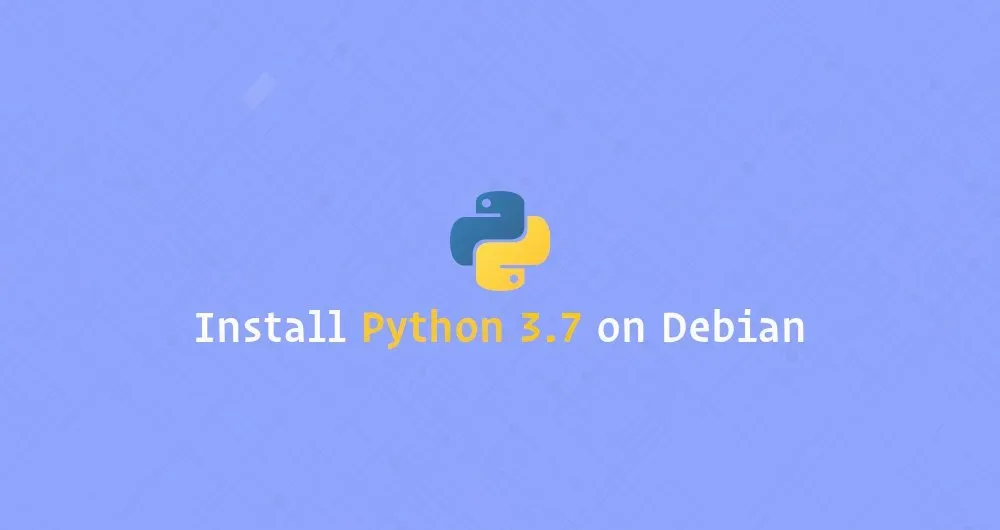Python is one of the most popular programming languages in the world. With its simple and easy to learn syntax Python is a great choice for beginners and experienced developers. Python is quite a versatile programming language, you can use it to do almost anything you want, write small scripts, build games, develop websites, create machine learning algorithms, analyze data and more. Python is also portable which means you can run the same Python script on different operating systems without any changes.
Python 2 support ends in 2020. Python 3 is the present and future of the language.
Python 3.7 is the latest major release of the Python language, and it includes many new features such as postponed evaluation of type annotations, support for data classes and context variables, customization of access to module attributes, and more.
This tutorial covers how to install Python 3.7 on Debian 9.
Installing Python 3.7 on Debian
Building Python 3.7 on Debian is a relatively straightforward process and will only take a few minutes.
- Start by installing the packages necessary to build Python source:
sudo apt update
sudo apt install build-essential zlib1g-dev libncurses5-dev libgdbm-dev libnss3-dev libssl-dev libreadline-dev libffi-dev curl libbz2-dev
- Download the latest release’s source code from the
Python download pageusing the followingcurl command:
curl -O https://www.python.org/ftp/python/3.7.3/Python-3.7.3.tar.xz
- At the time of writing this article, the latest release is
3.7.3. - When download is complete, extract the tarball:
tar -xf Python-3.7.3.tar.xz
- Navigate to the Python source directory and run the
configurescript that will perform a number of checks to make sure all of the dependencies on your system are present:
cd Python-3.7.3
./configure --enable-optimizations
- The
--enable-optimizationsoption will optimize the Python binary by running multiple tests which will make the build process slower. - Run
maketo start the build process:
make -j 8
- For faster build time, modify the
-jflag according to your processor. If you do not know the number of cores your processor you can find it by typingnproc. My system has 8 cores, so I am using the-j8flag. - Once the build is done install the Python binaries by running the following command as a user with sudo access:
sudo make altinstall
- Do not use the standard
make installas it will overwrite the default systempython3binary. - At this point, Python 3.7 is installed on your Debian system and ready to be used. You can verify it by typing:
python3.7 --version
Python 3.7.3
#debian #python
